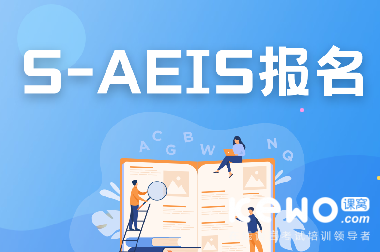AEIS考试词汇关于BUT的用法

AEIS考试你都准备的怎么样了,平时有没有进行一些阅读训练,阅读量是必须要有的,写作时有些词性的不同表达含义,下面和小编一起来看看具体解析吧。

BUT
但是
I have English class on Tuesday. (It is a specific day of the week).
我星期二有英语课。(这是指一周中的特定一天)。
I love to relax on the weekend. (It is a specific part of the week).
我喜欢在周末放松一下。(这是指本周的一部分)。
My birthday is on December 7th. (This is a specific day in December).
我的生日是12月7日。(这是十二月中的某一天)。
My birthday is in December. (My birthday is on the 7th, but it is surrounded by the other days in the month.
我的生日在十二月。(我的生日在十二月份的第七天,但这一天被这个月的其他日子包围着。
I was living in France in 2007. (The entire year of 2007 was surrounding the time that I lived in France).
我2007年住在法国。(整整2007年都是我在法国的时候)。
I have breakfast in the morning. (Morning starts from about 6am until 11:59.).
我早上吃早饭。(早上是指从早上6点到11:59一段时间)。
So we use the preposition “in” because this is a time that is surrounding you during that time period.
所以我们使用介词“in”,因为这是一个伴随着你的时间段。
The same goes for afternoon and evening.
下午和晚上也一样。
Night is different because the darkness is changing (you know with daylight savings time and such). So you say “at” when using night.
黑夜是不同的,因为黑暗在变化的(你知道白天节约时间等)。所以你用晚上说“在”。
Please, be careful when driving at night.
晚上开车时要小心。
There are some other things to keep in mind when talking about time.
谈论时间还有一些其他的事情要记住。
Let us say that you want to plan a brunch Monday morning. Because we have the specific day of the week “Monday”, we give preference to that word and the preposition is on.
我们打个比方说,你在星期一早上计划吃早午餐。因为我们有一周中特定的一天“星期一”,我们偏爱那个词,所以用介词on。
I will have brunch on Monday morning.
我星期一上午吃早午餐。
Here are some more examples:
下面是一些例子:
She went dancing on Saturday night.
她星期六晚上去跳舞了。
They went to a restaurant on Friday evening.
星期五晚上他们去了一家餐馆。
When talking about future time (you know what you plan to do later), be sure to use the preposition in.
当谈论将来的时间(你知道你以后打算做什么)时,一定要使用介词in。
For example
例如
I will see you in two weeks.
我两周后见你。
She will graduate in 4 years.
她将在4年内毕业。
When talking about TRANSPORTATION, the two prepositions on and in follow different rules. Don’t worry, they are pretty simple.
当谈到交通时,两个介词on和in都遵循不同的规则。别担心,它们很简单。
ON: When you CAN WALK around on the transportation.
你可以在交通工具上到处走动。
The idea here is if the mode of transportation has enough room to walk around, then use on.
这里的意思是,如果交通工具上有足够的空间走动,就使用on。
For example:
例如:
I was on the plane when you called me. (There is enough room on a plane to walk around).
你打电话给我时我在飞机上。(飞机上有足够的空间走动)。
I was on the bus yesterday. (Again, there is sufficient room to be able to move around with your feet on a bus).
昨天我在公共汽车上。(同样,你有足够的空间在公共汽车上走动)。
IN: When you can NOT WALK around on the transportation.
使用in的情况:当你不能在交通工具上走来走去的时候。
If the vehicle too small to walk around, then you need to use in.
如果车辆太小你不能在上面走动,那么你需要使用in。
For example
例如
Get in the car. (There is not enough space in a car to walk around).
上车。(车里没有足够的空间走动)。
Please, be careful when you get in the taxi.
当你上出租车时要小心。
The opposite follows the same rule. The opposite of ON = OFF.
反义词则遵循相同的规则。上车的反义词=下车。
So you get off a bus.
所以你下了公共汽车。
The opposite of IN = OUT
进去的反义词=出来
So you get out of a car.
所以你从车里出来。
如果你还有其他关于新加坡小学入学考试,新加坡爱同小学等问题,可以联系我们。


上一篇: AEIS考试关于词汇ON的用法
下一篇: AEIS考试写作素材分享(二)
猜你喜欢

利用暑假冲刺政府学校!咱们用真实案例说话
 2024.04.24
2024.04.24

剑桥KET、PET、FCE全解析,一篇文章轻松搞定!
 2024.04.18
2024.04.18

新加坡政府学校入学,AEIS考试是什么?一篇说清楚!
 2024.04.02
2024.04.02

2024年2月S-AEIS已经开始报名!最全攻略助您顺利报考!
 2024.01.10
2024.01.10

